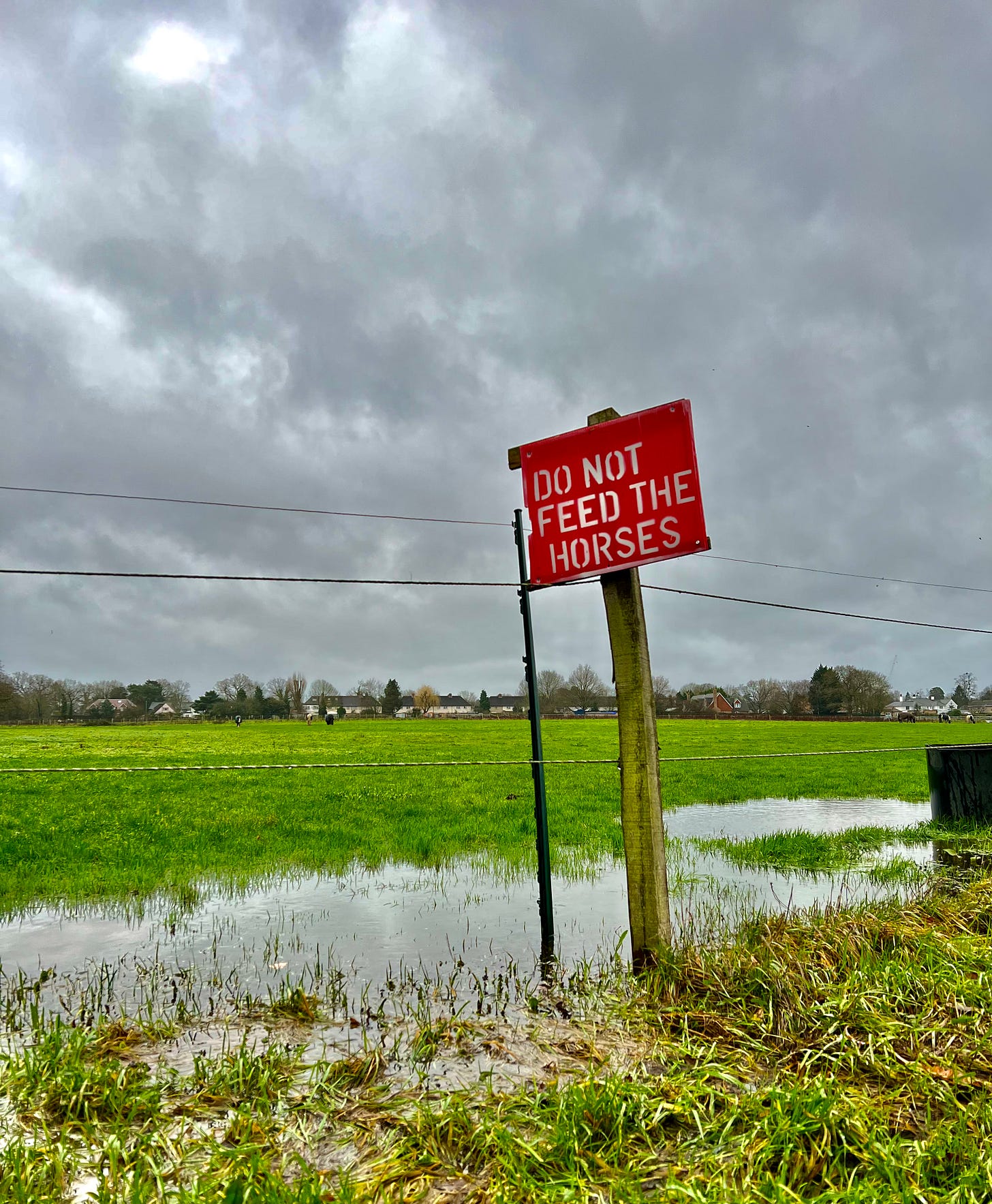I’m writing this a few days after new year not because I’m just getting home from partying, but because new year resolutions are not just for Christmas, but designed to bother you all year round.
It’s possibly too early to start bragging about successful new year resolutions, or rather goals as they seem to have been renamed, after all I haven’t booked those golfing lessons yet, but I may have found the key to success. Don’t make any. If I’d made one to raise a glass to the last midnight of 2022 then I’ll already have failed. I spent the last day of 2022 in 60mph winds on Portsmouth seafront. Holding on to lampposts to prevent being blasted into the Solent was actually far more exhilarating than it might have read on a promotional flier.
New Year’s Eve is never pretty. It’s loaded. And no one enjoys a loaded night. Even Londons’ bloody fireworks were loaded: it was sadly not the spectacle of woke politics and Ukraine platitudes going up in smoke , but rather an opportunity for the smug, loathsome Sadiq Khan to inflict upon a crowd wishing they’d taken a piss before they left the house that the authorities know best how they should think. Some displays were even gay; I’ve long pitied my gay friends who rightfully consider rainbows best suited to young girls’ pencil cases rather than representative in any way of how they really enjoy shagging men. Rainbows and the perpetually promoted victimhood must be utterly tiresome.
All New Years are an opportunity to make almightily bold public promises to yourself that you'll fail to live up to. Things like learning how to crochet family heraldry shields, shutting down your laptop as opposed to minimising windows, not feeding the horses, or to write a novel. We spend too much time in our lives determining to change the crappy plastic coat hangers for inexpensive, more substantial, wooden ones, yet never get around to it. If there’s one lesson learnt too late in life it’s the superiority of proper coat hangers. I mean you’re not still congratulating yourself for the foresight at lunchtime, but it’s a motivating moment first thing in the day nonetheless. There is a lesson there: do not wait for what is already now.
I once spent a New Year in Sandgate on the Kent coast overlooking the English Channel when the neighbouring house is one that H.G. Wells lived in. This is a man who wrote 50 novels and an equal number of non-fiction books. This is a man who has done more than enough to justify a blue plaque on any house he spent more than five minutes in, as that was apparently long enough for him to smash out another 20,000 words. In fact, there should be a trail of blue plaques marking everywhere he walked, crapped and slept before he finally succumbed to liver failure in 1946. If that doesn’t start the year with a deep sense of inadequacy, then you clearly own more wooden coat hangers than me.
The amount of time HG Wells must have spent alone is astonishing, although perhaps writing 50 novels in a 79-year life time is testament to the distracting impact of social media on the contemporary writer. At least that's what I'm claiming. I can't imagine Wells had off-days, and if he had writer's block then it's best not consider how many more books he may have written had he really focused. Sometimes you write dangling on the strings of the literary gods, at others you hit the page with the grace of an egg hitting a bowl. Wells was clearly dancing on more inspirational strings than most.
Having said that, I can see how he may have written so many books whilst staring at the English Channel - I know the French have tried to give it their own name, but no one knows what it is – as it’s the blankest stretch of water this side of a puddle. For what is purported to be the busiest shipping lane in the world, the Channel is utterly devoid of life. During my stay in Sandgate a helicopter drilled past towards Folkestone at such low altitude that it might have been possible to untie the pilot’s shoelaces. So many people on the beach waved that I suspect its fly-past made the front page of the local Herald. It was so exciting that people hung around in the hope they might see its return journey. H G. Wells probably wouldn't have looked up from his page. He had no distractions, not even TV, nor the necessity to move his car every two hours to avoid a parking ticket: true story.
Wells didn’t even only write. As a diabetic, in all his spare time, Wells co-founded the charity The Diabetic Association in 1934, which has since been rebranded as Diabetes UK, presumably because the former was too complicated for most people to understand. I’m also led to believe that managed a few affairs. Perhaps he had his own time machine.




